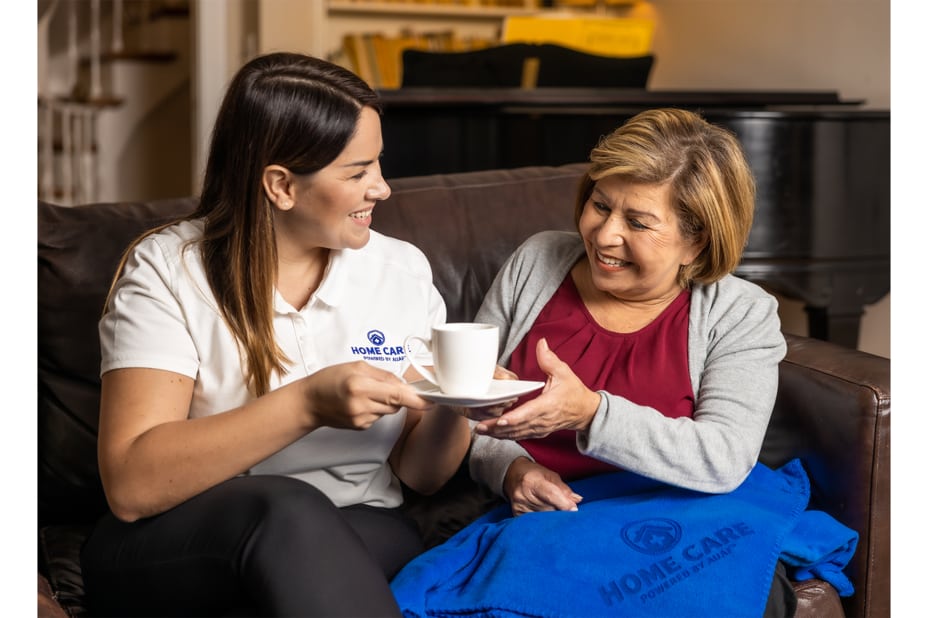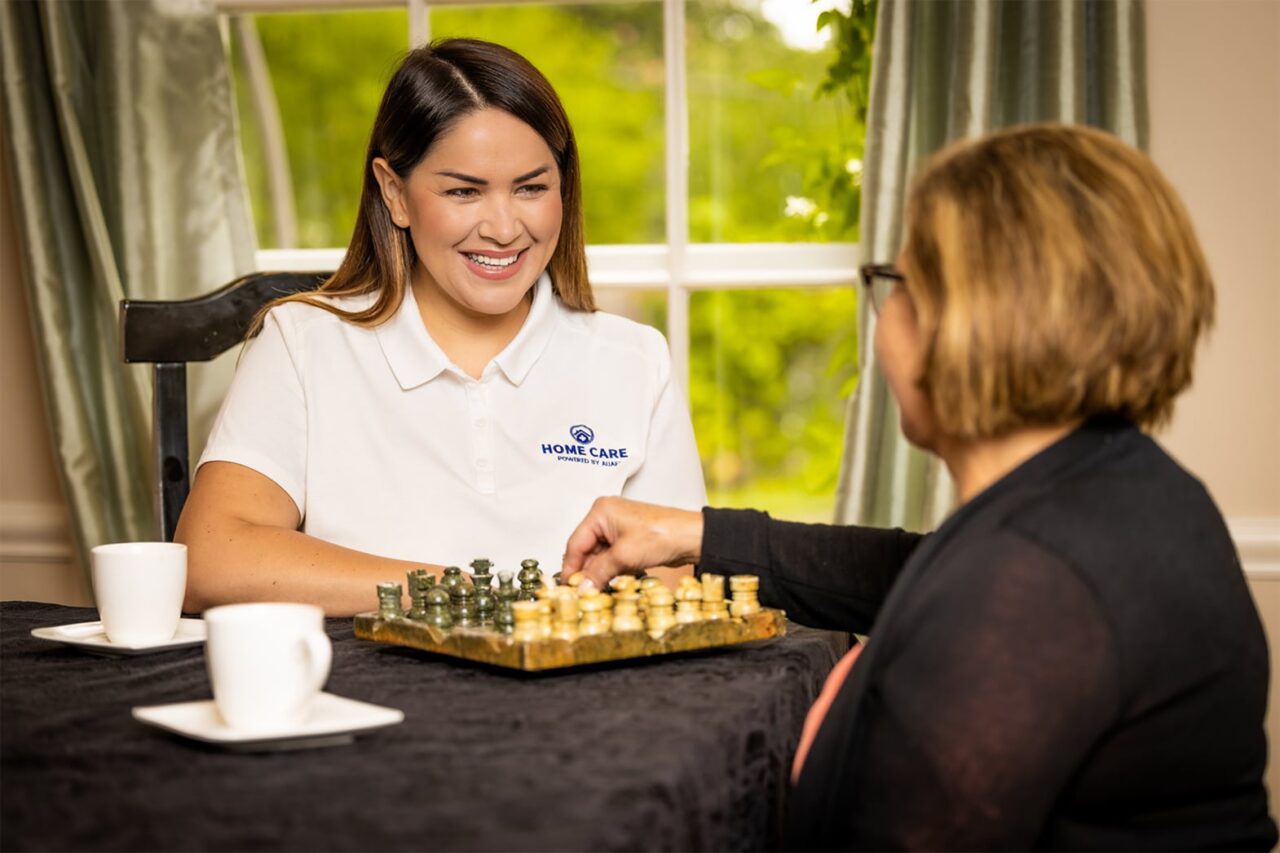
Caring for Seniors- 7 Cold Weather Safety Tips
November 18, 2020Winter is coming, and for seniors living at home, the dangers are real. Hypothermia, cold and flu season, and falls are the major consequences, but the risk factors for seniors in elderly care at home go far beyond what you’d expect. For example, those with circulatory issues like high blood pressure, or conditions with circulatory effects like diabetes may have less ability to sense the cold, and are at greater risk for hypothermia.
Hypothermia is more than just “feeling cold.” It is a dangerous lowering of the body’s core temperature that can cause heart attacks, kidney and liver damage, and is a serious threat to long-term health. Symptoms of hypothermia include:
- Cold hands and feet
- Puffy or swollen face
- Unexplained anger and confusion
- Trouble walking
- Slower heartbeat and shallow breathing
If you or a loved one is experiencing these systems, call 911 immediately, then try to warm the affected person with blankets or towels. Move to a warmer room if possible. A warm drink (without alcohol or caffeine!) may help as well.
Home Care Services — Beyond Hypothermia
In addition to hypothermia, falls are a common risk for seniors in a home care setting. In addition to icy or slippery surfaces outside, a tangled scarf can lead to a fall, or a discarded blanket on the floor can be a significant fall risk. Keeping your home clean can be quite a chore, but a senior in-home caregiver can assist with light housekeeping to help keep your home free of clutter.
Eat a Healthy Diet with Senior Home Care Assistance
A healthy diet is important for seniors living at home. Eating healthy helps maintain your immune system and gives you the energy to stay active. A home care aide can assist with this by helping with meal planning and grocery shopping, ensuring healthy meals are always available.

In-Home Services Help Seniors Stay Hydrated
Most people wouldn’t necessarily equate cold weather with dehydration, but it can be a major problem in elderly care. Most people are less likely to feel thirsty when they are cold, meaning they do not drink enough water. Dehydration can lead to heart problems, even death. A personal caregiver visiting can remind seniors to get enough to drink so they can avoid dehydration.
Stay-At-Home Care – Limit Trips Outside in Bad Conditions
It may sound obvious, but when conditions are bad outside, seniors at home should stay inside as much as possible. A home care aide can help with errands like picking up prescriptions or grocery shopping, allowing you to remain home and safe.
In-Home Care Means Having a Safe Heating System
It’s important to have a safe and well-functioning heating system in your home. Set your thermostat to at least 68°F during the day to avoid getting too cold. Many seniors are understandably concerned about the cost of heating their home. There are programs that can help seniors with their heating bills, giving you the peace of mind to keep your heat at a safe level. Elderly in-home care can keep you organized to apply for these programs.
Caregiver Services Can Help Seniors with Medication
Many conditions that are common to seniors in elderly care at home can affect how the body reacts to temperature. Thyroid conditions, diabetes, and circulatory ailments can all reduce the feeling of cold, raising the risk of hypothermia. Certain medications can reduce your sensitivity to the cold as well. Medication reminders and management with an at-home caregiver are a great way to make sure you aren’t at greater risk for hypothermia from your medicines.
At-Home Care Helps Seniors Stay Active
Exercise stimulates blood flow, keeping the body warm and preventing hypothermia. Regular exercise also keeps the body stronger, decreasing the risk of a fall. Home care aides can help remind you to keep moving, or help motivate you to exercise.

Personal Care – Dress for the Season
Loose layers of clothing are best for cold weather because they trap warm air in between the layers. A personal care aide can help by not only assisting with dressing, but also ensuring you have enough layers available with laundry services.
Home Care Powered by AUAF is Here to Help Seniors Stay Warm and Safe at Home
The dedicated in-home caregivers of Home Care Powered by AUAF are here to make this winter a safe and healthy one. Call us at 773-274-9262 or contact us to find out more about how you and your loved ones can stay warm with us.
Articles:
-
How to Use FaceTime: a Senior’s Guide
March 20th, 2024 -
The Best Organic Cleaning Products for Caregivers
March 19th, 2024 -
Celebrating St. Patrick’s Day with Seniors
March 14th, 2024 -
Intellectual Activities for Seniors to Keep their Brains Stimulated
March 13th, 2024 -
Tips for Communicating with Seniors with Hearing Loss
March 12th, 2024 -
How to Learn a New Language as an Older Adult
March 7th, 2024 -
Foods that Support Bone Health in Seniors
March 6th, 2024 -
A Note to Our Staff for Caregiver Appreciation Day
March 1st, 2024 -
The Importance of a Senior/Caregiver Bond
February 21st, 2024 -
Recreational Sports as Fitness for Seniors
February 27th, 2024 -
Exploring the Wonders of Reminiscence Therapy
February 15th, 2024 -
Staying Educated on Alzheimer’s Disease and Dementia Care
February 14th, 2024
Call Now! 773.274.9262




